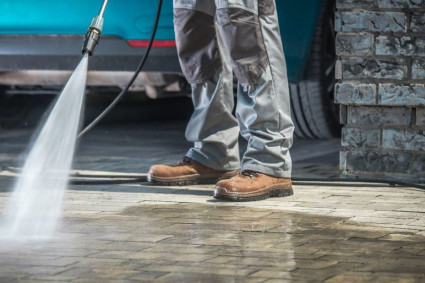Like any appliance in your home, regular maintenance is necessary to ensure that your water heater remains in optimal working condition. Failure to do so can result in damage, an exorbitant water bill, and the inconvenience of not having hot water.
We understand that as a non-professional plumber, you may not have all the knowledge about water heater maintenance. That is why we have created this guide to answer the most commonly asked questions about water heaters.
The cost of installing a water heater depends on various factors, including the type of water heater and tank size, if applicable. In general, tankless water heaters are more expensive than tank water heaters. Additionally, larger tanks tend to come at a higher cost. Electric heaters are typically less expensive than gas heaters, while more energy-efficient options such as solar-powered water heaters or indirect heaters are more expensive. It is also important to consider the cost of bringing your existing water heater plumbing up to code. Along with the cost of the water heater itself, you are also paying for the labor to install it. When choosing the right water heater for your budget, it is crucial to consider yearly operating costs and expected lifespan. Our team at Quick Flush can assist you in selecting the most suitable water heater for your needs.
When it comes to installing a tankless water heater, there are two types to consider: whole-house systems and point-of-use systems. A whole-house system should be located near the existing water and gas lines and where proper venting is possible. On the other hand, a point-of-use tankless water heater should be placed close to the faucets or appliances it will supply hot water to. The distance the water travels from the heater to the tap affects its temperature. It is essential to avoid placing the heater directly below pipes or air conditioning lines that could potentially drip onto it and cause fire hazards. When you choose Quick Flush for your tankless water heater installation, our expert plumbing technicians will provide guidance on the optimal location for your heater.
Regularly flushing your water heater is an important maintenance task that can extend its lifespan. This is particularly important if you do not have a water filter on your incoming line. Without a filter, dirt and sediment from the water can collect at the bottom of the tank. Sediment buildup can reduce the energy efficiency of your water heater and lead to damage. It requires more energy to heat the sediment along with the water, and it can even cause insulation that hinders heat transfer. Sediment buildup can also result in damage to the tank, such as cracks or leaks. If you are experiencing any issues with your water heater that may be related to sediment buildup, it is advisable to contact Quick Flush for an evaluation.
If you have a gas-powered water heater, it utilizes a pilot light as an ignition source for the gas burner that heats the water. The pilot light should always be present to ensure a consistent supply of hot water. However, if the pilot light goes out, you have a few options. First, determine whether your heater is automatic or manual. If there is a silver box on the side of the heater and a pilot dial, along with a button labeled 'ignition,' it is an automatic water heater. If not, it is a manual water heater. For automatic water heaters, simply hold down the pilot knob and the ignition button simultaneously to relight the pilot light. For manual water heaters, you will need a long lighter. Start by removing the metal plate covering the pilot button and locating the pipes leading to the burner. Turn the pilot dial off and allow any gas to dissipate for 5 to 10 minutes. Then, set the dial to 'pilot' and the temperature knob to 'low.' Hold the pilot dial down for 30 seconds while using the lighter to light the burner. Please note that these instructions are general and it is important to follow the specific instructions provided by your water heater's manufacturer.
Determining when to replace your water heater depends on the type of heater you have and how well you have maintained it. By having a professional maintain your water heater at least once or twice a year, you can prolong its lifespan. Tankless water heaters generally last longer than tank water heaters. With proper maintenance, a tankless water heater can continue to provide hot water for your home for 20 years or more. However, tanks that hold large quantities of standing water for prolonged periods may require more frequent replacement. The standing water can cause rusting and make the tank susceptible to cracks. On average, a tank water heater will last between six to 12 years. If you have had the same tank water heater for about 10 years, it is recommended to consider replacing it. Our team at Quick Flush installs both tankless and tank water heaters, and we are happy to discuss your options with you.If you need assistance, call Quick Flush on 07458148084 and get in touch with plumbing professionals today.https://plumbingandheatingservices.co.uk/




